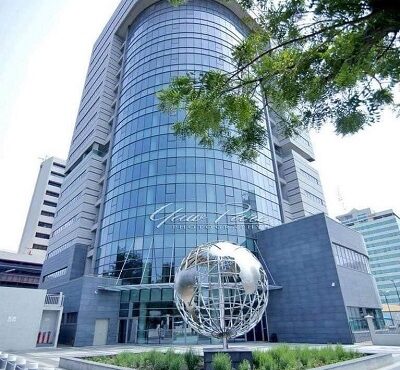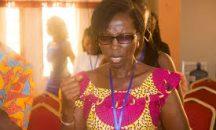Industrialisation and AfCFTA; panacea to Ghana’s economic woes

I have been following expositions by Ghana’s Minister of Trade and Industry, Mr Alan John Kwadwo Kyerematen about his vision to industrialise Ghana through the NPP’s One District One Factory (1D1F) policy as well as his role in drawing up and seeing to the implementation of the African Continental Free Trade Area (AfCFTA) project.
I always tell myself that if this was back in 2008/09 when I was doing my Masters in International Affairs, the knowledge I have learnt from Mr Alan Kyerematen would have given me an ‘A’ without learning many theories in International Trade & Development as well as International Economics. I could have passed the two courses without hustle.
The AfCFTA is the largest trading block since the World Trade Organisation (WTO) was formed. By World Bank estimates, the AfCFTA is expected to increase intra-African trade from its current 13 per cent about 51 per cent in the next 10 years, serving about 1.2 billion Africans, and injecting billions of dollars annually into Africa’s Gross Domestic Product (GDP).
Currently, China remains Africa’s biggest trading partner. In 2019, trade between Africa and China amounted to US$192 billion whilst China’s Foreign Direct Investment (FDI) in Africa was US$2.7 billion. The disparity in trade volumes between Africa and China is heavily tilted in favour of China.
Whilst China imports raw materials from Africa, it exports finished goods to the continent resulting in a huge trade deficit in favour of China. China is only one of Africa’s trading partners. The US, Europe, and India are among others.
The only solution to the problem of Africa taking raw materials outside and importing finished products is for it to industrialise.
There is no single economic powerhouse in the world which does not use exports of finished goods as the bedrock of its economy. US, Japan, Germany as well as the Asian Tigers; Taiwan, Korea and others are all export-led economies and none of them export raw materials.
There is certainty that Africa is the continent of the future. Investors in the wide world are looking for the next destination for their investments and Africa offers them a huge opportunity for untapped human and material resources.
Luckily for Ghana, the AfCFTA Secretariat through the ingenuity of Mr Kyerematen is in Accra. With its democratic values and peaceful nature, Ghana could attract investors.
What is needed is the leadership which can assure the investor communities both local and foreign of value for their money. This is because direct investment is not a charity job that we must beg for. It is an assurance given to those with the wherewithal to invest that their investments will not go down the drain.
The World Bank has reported that Ghana’s economy can expand by 0.5 per cent for the next 10 years through the AfCFTA, hence, Ghana needs to implement the rest of the AfCFTA protocols.
As eyes are fixed on Ghana as host country of the AfCFTA Secretariat, Investors are highly interested in how Ghana conducts its economic drive as the gateway to Africa. This calls for an astute leadership in economic management.
With the Minister of Trade and Industry implementing the 1D1F and being the architect of the AfCFTA, investors see the opportunity to invest in Ghana to be able to export to all the African states.
The surest bet to Ghana’s industrialisation, the panacea to Ghana’s economic upturn is to make Alan Kyeremateng lead Ghana NOW.
The writer is at Legon Centre for International
Affairs & Diplomacy (LECIAD),
University of Ghana, Legon.
By Nana Kwame Nkrumah (PhD Candidate)













